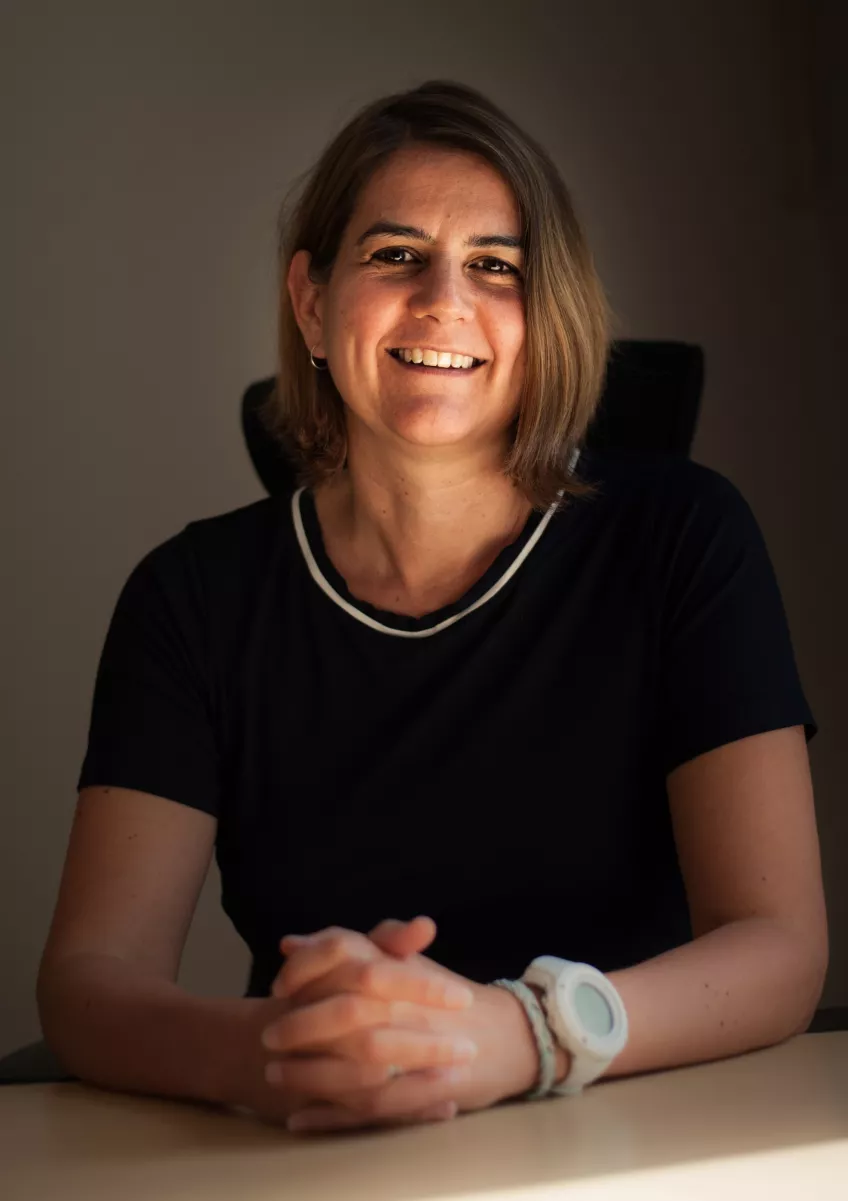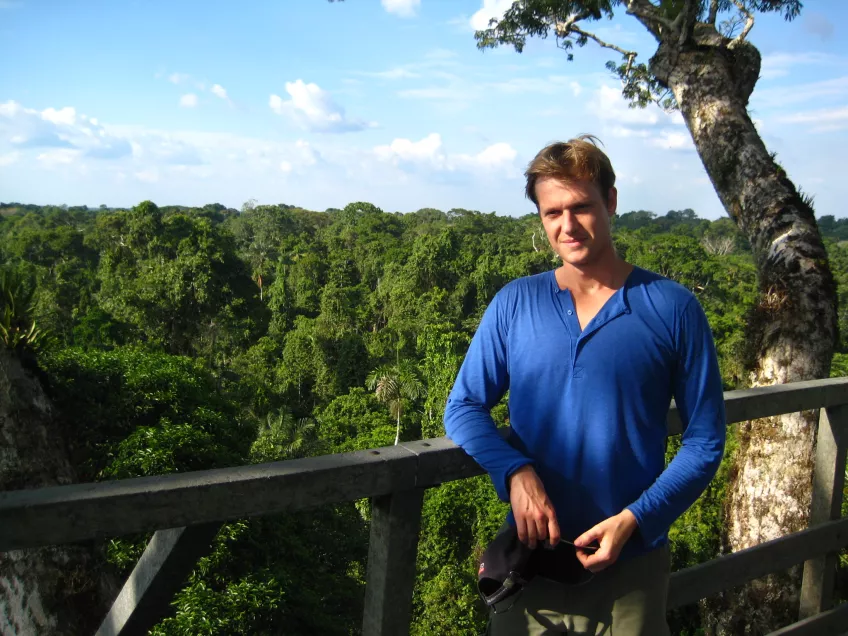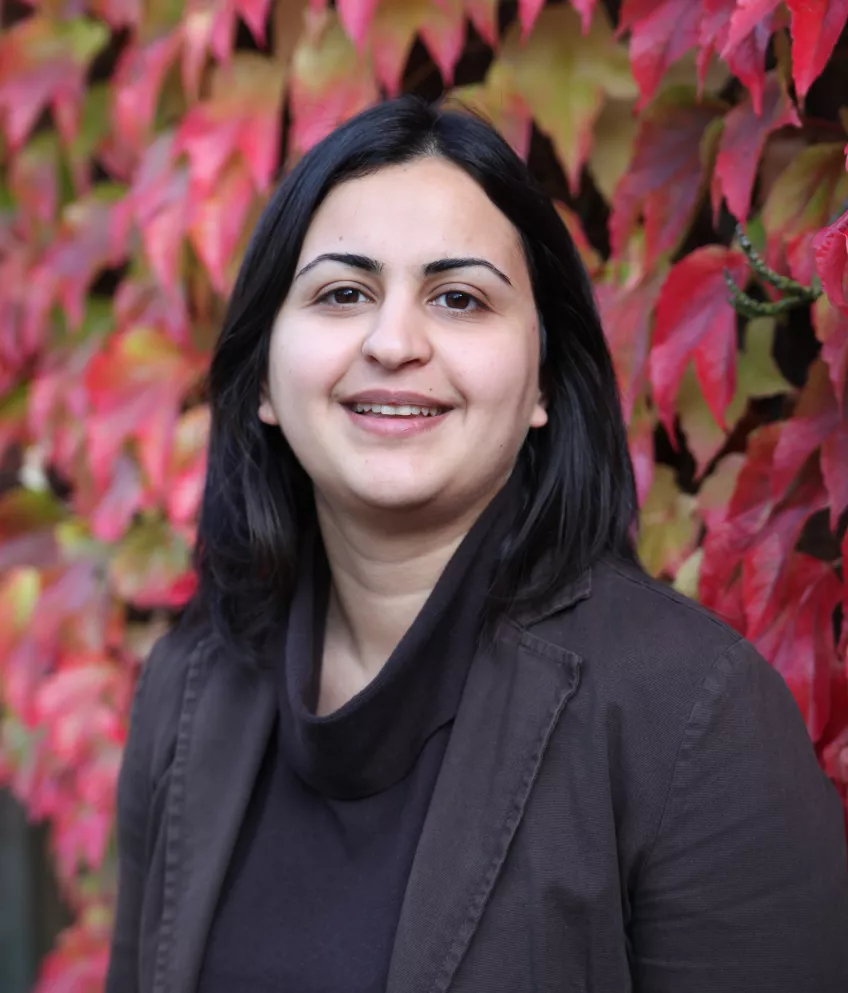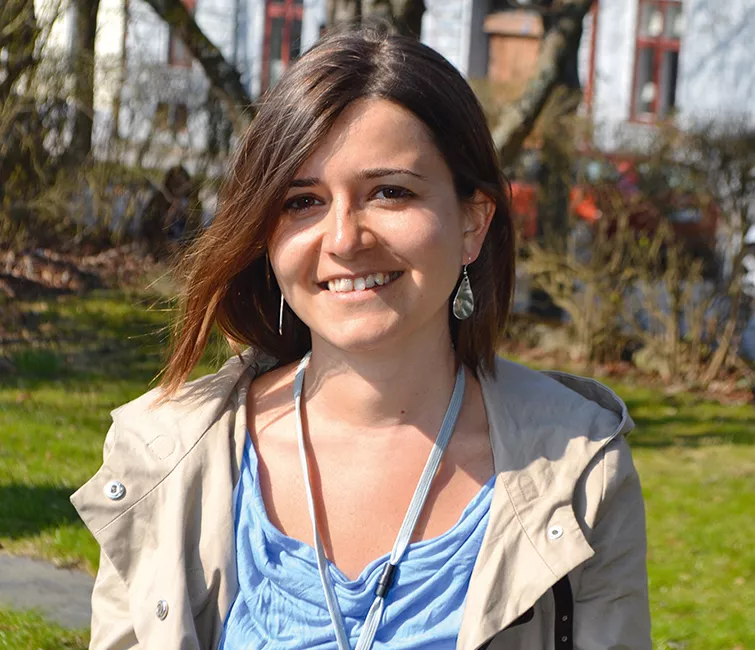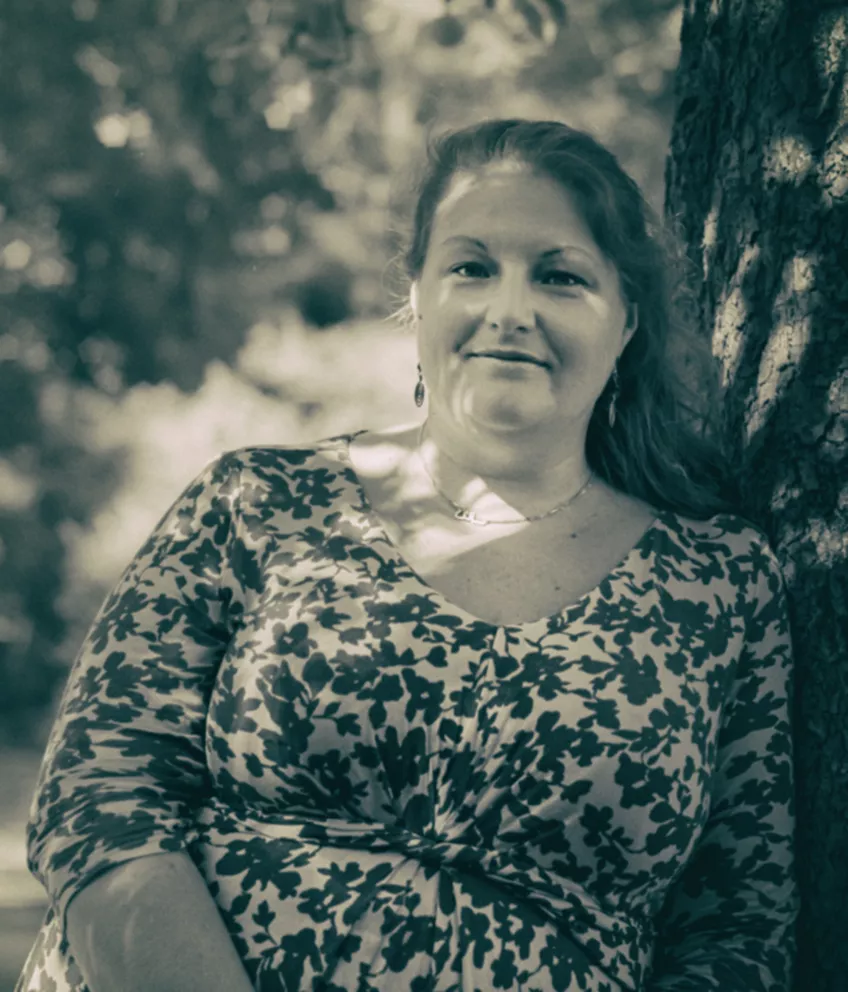Meet our Researchers
Emily Boyd,
New director at LUCSUS
In August, the former director and founder of LUCSUS, Lennart Olsson, handed over the directorship to Emily Boyd.
We welcome our new director by asking some quick questions on her thoughts about and visions for LUCSUS.
Read also the interview with Emily in LUM, Lund University Magazine 5/16: “Sweden is at the forefront on sustainability!”
What is your background in research?
My most recent appointment was as professor at the University of Reading in England, where I was in charge of the research on global development, which is also my main area of research. My focus is on climate change and poverty issues, including the study of the impact of climate change on the most vulnerable and poor.
I have also worked at the University of Oxford and the University of Leeds. I did my postdoc at the Stockholm Resilience Centre, where I gained my first insight into and experience of Swedish higher education.
What made you interested in LUCSUS and Lund University?
Lund University is and outstanding university and LUCSUS is one of the most active and exciting centres for sustainability issues. I especially like its combination of theoretical and practical specialisation and the close collaboration with stakeholders.
Sweden is currently making a lot of progress concerning these issues. The country is a leading example when it comes to sustainability issues and there’s a lot of government support – so now is a particularly exciting time to be a part of this work.
Sweden is investing more in female researchers and is at the forefront when it comes to gender equality, so these things are also important to me as a female researcher and leader.
There is also a unique “work-life balance” that offers the conditions you need for a more sustainable way of living. As sustainability is part of my work, it is important to me that I am able to live sustainably as well.
How does it feel to finally be here at LUCSUS and in Lund?
Fantastic! It feels like this is a very good time to be arriving in Lund and at Lund University as an international researcher. I have been very warmly received by everyone, and been offered plenty of support. The expectations are of course high – mine and others’ – but that is as it should be.
How do you hope to contribute as the new director of LUCSUS?
I hope to contribute with my enthusiasm and experience, both within research and as a leader. I want to help improve the quality of research, and achieve recognition for our research and education. I also hope to be able to help organise our research so that the outside world understands what we do. The most important thing is, of course, the quality of research, but we must also be able to tell the world what we do and why it is important.
Both communication and leadership skills are also important to me, and I believe I have good experience and knowledge to share in this respect.
What is your vision for LUCSUS?
I want LUCSUS to be one of the foremost interdisciplinary centres in the world, working with issues concerning sustainability, development and climate, through a theoretical and practical approach – making a real world impact.
I want people to want to get involved and work at LUCSUS, and for us to be highly diverse, in terms of both our research and our researchers.
I am currently working on writing down my visions for the centre, and I have already come up with a list of things to tackle right away.
Torsten Krause,
Senior associate lecturer at LUCSUS
Hello Torsten,
What is currently on your research agenda?
I am part of a European Research Project (FP7) on the operationalization of ecosystem services and natural capital (OPERAs) where we are leading a task on governance. Otherwise, I am leading an interdisciplinary advanced study group at the Pufendorf Institute with scholars from four different faculties. Together we explore the impacts that post-conflicts have on the environment and environmental justice.
I also just received a 3-year grant from the Swedish Research Council (VR) and will start a new project in June 2017 for which I will be leaving Lund for two years to become a visiting researcher at the University of Colorado at Boulder, United States and the University de los Andes in Bogotá, Colombia. In this project I will study defaunation, that is the loss of animal species due to hunting and habitat loss, in tropical forests in Ecuador and Colombia.
What’s the best part of being a researcher?
The freedom to learn and explore topics that you find interesting and relevant for sustainability science. I also enjoy teaching and find it one of the best ways to have an impact and use your own research and have it assessed by a lot of critical friends sitting in the classroom.
I also like to be a researcher because it allows me to combine desk work with on the ground research in different settings. Whether it is farmers, government officials or indigenous hunters in Ecuador, it gives you a perspective of why we do research and what kind of research is important so that it matters for people and society at large.
Why did you become a researcher at LUCSUS?
I ended up in LUCSUS because it is different from other departments. It is very interdisciplinary and working here is not constraint by disciplinary barriers and theories. I don’t want to be branded as an economist or geographer, not that it is bad to have a ‘home’ discipline, but I enjoy being a bit of everything and being able to explore new avenues of research and different theories and methodological approaches. This is what LUCSUS allows you to do.
What was your latest research publication about?
The last paper I published was as a co-author with a Master student I supervised. She wrote about ocean acidification and the vulnerability of the Norwegian Fishing industry. Very fascinating and hugely important topic. I supported her throughout her thesis and then we worked closely together to turn it into a paper and it was now published in the journal Integrated Environmental Assessment and Management.
What are the implications of your research for society?
This is one of the most pertinent questions we at LUCSUS constantly ask ourselves. I want my research to be important of course, and I think it is. Measuring the impact is difficult though. In the past I have at least been able to show the shortcomings of a national program for forest conservation in Ecuador so that policy makers and the people who manage the program are able to adapt the program as a result. Apart from that, I believe that part of my job is to talk to other researchers about the complexity and the connections that are often not acknowledged in purely disciplinary research.
Maryam Nastar,
Research fellow at LUCSUS
Hello Maryam,
What is currently on your research agenda?
I’m working with a group of international scholars on a British-funded project, called T-GroUP: Experimenting with practical transition groundwater management strategies for the urban poor in Sub Saharan Africa, one of UPGro Consortium Projects. We strive to explore social, technical and political changes that are needed to make the shift towards sustainable urban groundwater management in Sub-Saharan Africa.
What drives you to be a researcher?
What motivates me to do research, is the opportunity to learn from a wide range of literature and people and to deal with problems that can be only resolved by thinking outside of the box. The (relative) academic freedom makes this learning process further unique and fascinating compared to often profit-oriented research in industry.
What was your latest research publication about?
My latest publication has been about analyzing approaches to water provision in South Africa and India. I illustrated how unequal water access in cities of Johannesburg and Hyderabad exists despite the current pro-poor water policies. In this paper, I discussed the underlying structural elements causing disparity in water access in both cases and argued they have a common root.
Publication: The quest to become a world city: Implications for access to water
http://www.sciencedirect.com/science/article/pii/S0264275114000535
What are the implications of your research for society?
I hope my research brings to the fore those aspects of water management and governance issues that are often overlooked in policy analysis. Also, by investigating problems from different angels, I strive to put forward strategic plans for active social groups to effectively deal with sustainability challenges.
Mine Islar,
Assistant professor in sustainability science at LUCSUS
Hello Mine,
What is currently on your research agenda?
My current research project is called: “Ecological citizen and right to the city movements in Southern Europe.” As part of it, I explore citizen municipalism in Barcelona. I look at the role of activist groups, which have managed to mobilize and actually win the municipal elections in Barcelona. They create a political platform to pursue their goals for creating a socially just and sustainable city.
What drives you to be a researcher?
My belief in a just society and my notorious curiosity are the driving forces behind my work. I genuinely want to know and document the power of the people making change possible and actually happen. In my current research, the mayor of Barcelona, a former activist Ada Colau, and her movement, has definitely caught my interest. When they came to power, she said: “Let us never forget who we are and why we are here.” I think those are very wise words.
Why did you become a researcher at LUCSUS?
After completing my master degree in Asian studies, I wanted to further pursue an interdisciplinary education. I was lucky to be accepted into the LUCID PhD programme which was open to candidates from several cultural and interdisciplinary backgrounds from all over the world. So my journey to become a researcher at LUCSUS started with the LUCID programme, which allowed open intellectual space, and for me to develop critical social science research on sustainability.
What was your latest research publication about?
My last paper was published with my colleague Henner Busch. It is called “We are not in this to save the polar bears!” – the link between community renewable energy development and ecological citizenship”. The publication is based on a fieldwork we did in Samsø, Denmark and Feldheim, Germany. We found that citizens organised and managed renewable energy transitions in their municipalities. We investigated the conditions of these transitions and we found that there is a great potential in energy collectives to pursue sustainable change. In these processes locals exercise a different idea of citizenship that prioritises social cohesiveness, belonging and trust in their local community. Even if their priority is not always to “save the polar bears” which are far away from their village, they can still mobilize for their community’s shared vision which can include ecological goals.
Read the publication here http://www.tandfonline.com/doi/full/10.1080/13511610.2016.1188684
Sara Gabrielsson, Assistant Professor at LUCSUS
Sara lives in both Sweden and Tanzania, where she teaches and supervises Master and PhD students in Integrated Sanitation Management, one of Sara’s main research areas.
Hello Sara,
What is currently on your research agenda?
Currently I am a co-coordinator of a capacity building program, Sustainable Sanitation in Theory and Action (SUSTAIN), with University of Dar es Salaam, Tanzania funded by SIDA. The objective of the program is to build and strengthen human resource capacity within the sanitation sector and provide ways to go from theory to action.
Most of my teaching and interactions in Tanzania therefore focus on highlighting the importance of socio-cultural aspects of sanitation, especially related to gender and inequality issues. These issues are too important for the engineers who build and install sanitation systems to ignore. To make them sustainable in the long term they need to be incorporated into the design, governance structures and operation and maintenance of the systems built.
Besides teaching and supervising I do research on community based water and sanitation delivery schemes in a rural setting in Tanzania. I have also just recently become more interested in Urban Sanitation issues and how Productive Sanitation (turning Faecal sludge into bio-charocal or fertilizers etc) can contribute to sustainability and livelihood improvements in informal settlements in east Africa mega cities.
What drives you to be a researcher?
Curiosity and the urge to contribute to positive change is what drive me to do what I do. I think research should contribute to transformational change. It should not be done for research sake. It has to have a purpose. My main driver is that there are so many injustices in the world and I should play a part in finding ways to improve the lives of the people much less fortunate than me, however insignificant it is on a global scale.
Why did you become a researcher at LUCSUS?
I was doing an internship at UNEP in Bangkok when I was approached by the Director of LUCSUS, who asked me if I was interested in doing a PhD. At that time I had not ever considered doing a PhD. I had my eyes set on working within the UN system. But during my internship I realized that the UN was probably not for me. I wanted to be closer to the action on the ground. The offer of a PhD position in East Africa therefore came very timely. And now I’m still here and I have never looked back.
What are the implications of your research for society?
Sanitation is a basic need and without it no society can prosper and no human can truly experience a sense of well-being. I think that contributing to finding ways to improve water and sanitation delivery and services, especially in the growing cities of sub-saharan Africa, is a monumental task, but a necessary one if we want to contribute to sustainable development in the future. I want to be part of contributing to that change.
Where do you see your research five years from now?
I hope that I have contributed to giving more attention to the multiple benefits of productive sanitation through action research on successful cases. I also hope that I have contributed to scaling-up the capacity building program that I am part of coordinating at University of Dar es Salaam to other countries and institutions across Africa to increase the human resources to deal with the prevailing sanitation crises on the continent.
